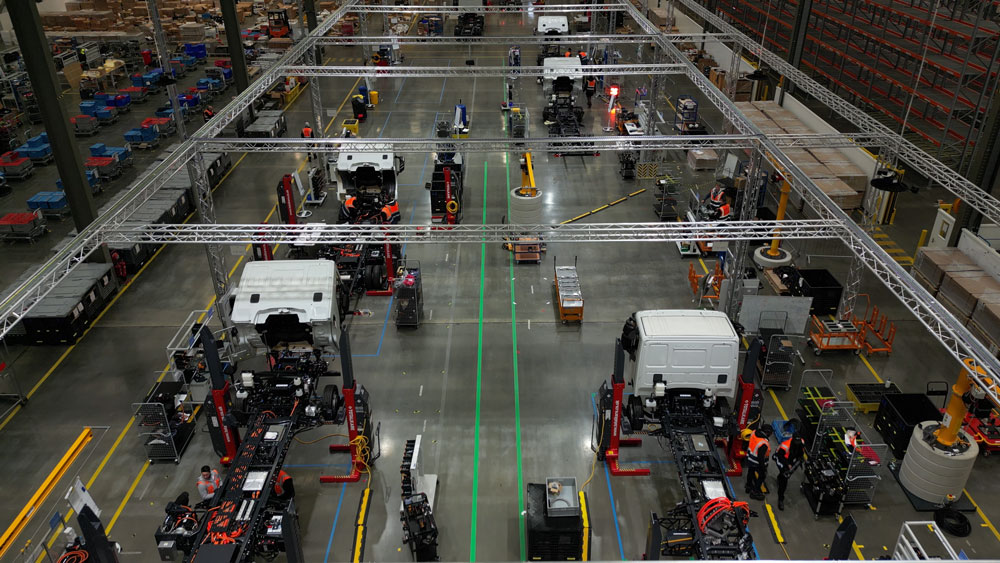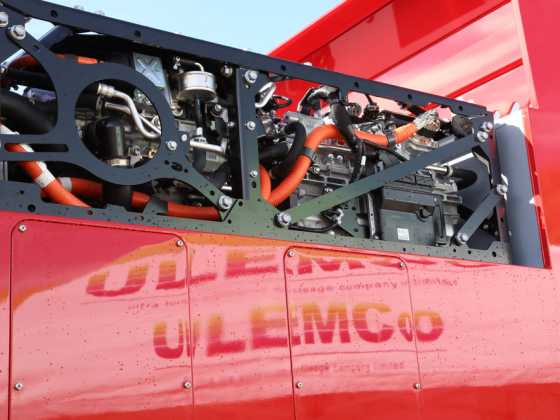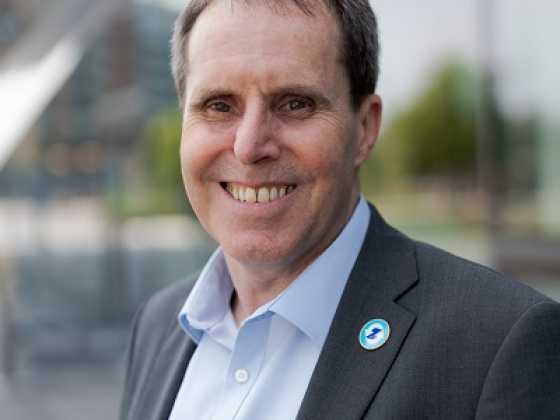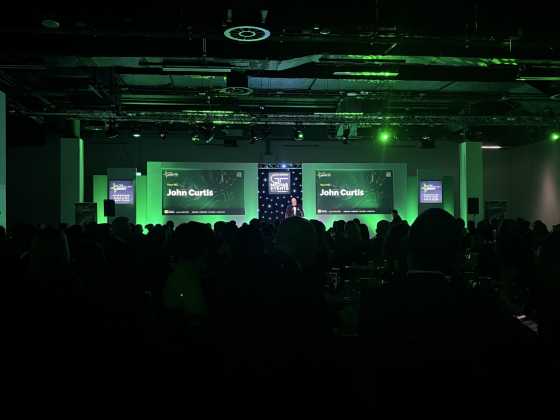Decarbonising the hard-to-decarbonise

Heavy goods vehicles are the hardest to fully decarbonise. But with targets to phase out new fossil fuel trucks, this sector has received considerable focus. We sum up the latest innovations in greening the heavy goods vehicle sector
Battery electric vehicles hold strong potential for decarbonising heavy goods, yet are currently limited by challenges. They have shorter ranges due to their size and weight, and with limited charging infrastructure, long charge times, and the high cost of vehicles, the decarbonisation of such vehicles is lagging behind smaller types.
Hydrogen fuel cell electric vehicles (FCEV) also hold much promise, as ranges are longer and refuelling is quick. But the technology suffers from a lack of fuelling sites and lack of cost-effective vehicles.
With the government aiming to phase out the sale of new fossil fuel HGVs by 2035 – or possibly 2040 for certain vehicles and use cases, the race is on to find viable ways to decarbonise the heavy goods sector, and there is lots of innovation occuring.
Electric trucks
British electric vehicle manufacturer Tevva has secured European Community Whole Vehicle Type Approval for its 7.5 tonne battery-electric truck. This means that Tevva can start producing and selling in volume across the UK and Europe.
The first mass produced electric trucks have started to be delivered from their UK base and will be received by customers including Expect Distribution, Travis Perkins and Royal Mail. The company expects to sell up to 1,000 electric trucks in 2023.
Tevva’s 7.5t electric truck offers up to 140 miles from its 105 kWh battery on a single charge, and is ideal for last-mile and urban delivery fleets. It will be followed later in 2023 by a 7.5t hydrogen-electric truck, which benefits from a hydrogen range-extender that enhances vehicle range to up to 354 miles.
Volta Trucks meanwhile has announced that series production of Volta Zeros are due to start rolling off the line of the company’s contract manufacturing facility in Steyr, Austria, in early Q2 2023. The Volta Zero is a full-electric 16-tonne vehicle with a range of 95-125 miles.
Volta Trucks and Siemens Smart Infrastructure have recently agreed to work together to simplify and de-risk commercial fleet electrification.
The partnership will bring together Volta Trucks’ Truck as a Service offer and Siemens’ experience in electric vehicle support solutions. This includes software control systems, facility electrification, charging infrastructure, energy management, building equipment and project finance. The partnership will seek to support Volta Trucks’ customers by providing infrastructure for full electrification aligned with their operational needs.
Charging on long journeys
To address charging during long haul, European journeys, an electric truck “charging corridor” has been built along a 372 mile stretch of the Rhine-Alpine corridor across Germany.
Built by bp pulse, the six public charging locations have ultra-fast 300kw charge points aimed at E-Trucks. They have been built on one of the busiest road freight routes in Europe, connecting key North Sea ports in Belgium and the Netherlands with the Mediterranean port of Genoa in Italy.
The new chargers have been installed on Aral retail sites in Germany between the Rhine-Neckar metropolitan area and the Rhine-Ruhr metropolitan region. Aral is bp’s German retail brand. In the next six months, two additional locations are scheduled to open on Aral retail sites to complete the new charging corridor.
Once complete, using the Aral pulse charging corridor, an E-Truck will be able to cover over 372 miles across Germany along one of European’s major road transport routes.
The 300kw charging stations are each capable of charging more than 20 E-Trucks, per charger each day. An E-Truck’s range can reach up to 124 miles in around 45-minutes using the ultra-fast charge points.
Nigel Head, EV Truck Director, Europe, bp pulse, said: “By electrifying this stretch of the Rhine-Alpine corridor with ultra-fast charging, bp is enabling EV Truck charging beyond “back to base” whilst rapidly learning customer insights which will directly inform our longer-term European network and proposition.”
“By beginning the roll-out of a dedicated charging network for freight operators and fleets, with a focus on major logistics corridors, bp is supporting the electrification of medium and heavy-duty vehicles, decarbonising the movement of goods, as well as people.
“Ultra-fast charging in the right locations, combined with depot and destination charging, is critical infrastructure to accelerate the electrification transition, unlocking the economic and environmental benefits of low-carbon commercial road freight and transport.”
Hydrogen
Hydrogen has been recognised as a good zero emission solution for long haul heavy goods vehicles. It has a higher energy density than lithium-ion batteries or diesel which makes it more effective for use in larger commercial vehicles. However, to make hydrogen a viable alternative fuel, much must be done to improve the limited fuelling infrastructure and to achieve cost parity with diesel trucks.
To help drive the country’s hydrogen ambitions, the government has appointed Jane Toogood as the UK’s first Hydrogen Champion
Jane, who is Chief Executive of Catalyst Technologies at Johnson Matthey, will play a vital role in bringing industry and government together to realise the government’s hydrogen ambitions – including supporting up to 10GW of hydrogen production capacity by 2030, aiming to run annual allocation rounds for electrolytic hydrogen, and designing, by 2025, new business models for hydrogen transport and storage infrastructure.
Industry is rapidly innovating hydrogen transport solutions. British firm Tevva will soon be launching its 7.5t hydrogen-electric truck, which benefits from a hydrogen range-extender that enhances vehicle range to up to 354 miles. It will be the first vehicle of its kind to be manufactured, designed and mass-produced in the UK.
Tevva says that adding a hydrogen fuel cell system to its battery-electric HGV design, the truck will deliver a zero-emission solutions that will work for most fleet operators across various industries and sectors.
Also in the UK, the Hub2Hub consortium led by Hydrogen Vehicle Systems has been awarded £6.6 million to develop a world-first, autonomous zero-emission HGV for the UK market.
The Hub2Hub consortium will create a self-driving heavy goods tractor unit, which will begin vehicles trials with ASDA in 2024. It’s hoped that the cost savings an autonomous lorry could provide will speed up the adoption of zero-emissions vehicles by the freight sector, reducing the industry’s contribution to climate change.
The £12 million venture has been selected by the Centre for Connected Autonomous Vehicles (CCAV) as a recipient for its joint industry and government-funded project with the aim of showcasing the potential of autonomy in the transportation sector with unprecedented levels of efficiency, safety and operational cost savings for logistics operators, as well as providing new employment opportunities.
The consortium, made up of HVS, Fusion Processing Ltd and ASDA, will build two prototype vehicles that will allow Level 4 autonomous-driving.
The first hydrogen-electric HGV prototype will be fitted with a driver’s cab and tested on the road in autonomous operation, using the Fusion Processing’s Automated Drive System, CAVStar, with a human safety driver at the wheel.
The second prototype will have the driver’s cab removed and replaced by an aerodynamic fairing. During the project this vehicle will be evaluated on test tracks, with the CAVStar system in this application allowing a remote human driver, located in a control hub, to operate the vehicle.
Together these two prototypes point to an optimised future logistics system where vehicles could be operated in autonomous mode on a hub-to-hub route, with a remote driver then taking control to drive the vehicle from the hub to its end destination.
Not only will the HGVs decarbonise the freight sector, it will expedite the development of Hub-to-Hub automated driving technology. Fusion’s collaboration in the project will see the development and integration of its advanced CAVstar system where a fusion of vision systems, AI and route planning can deliver a fully autonomous vehicle that takes over from a human driver and hands back control at pre-determined hubs on a route.
Hydrogen in Europe
GP JOULE, located in Germany, has announced its intention to order 100 Nikola Tre hydrogen Fuel Cell Electric Vehicles, which will be manufactured by a joint venture between Nikola and Iveco Group.
Thirty of the initial 100 Nikola Tre FCEVs are expected to be delivered to GP JOULE within 2024. This will be followed by the delivery of the remaining 70 vehicles in 2025, with the possibility for GP JOULE to acquire them through GATE - Green & Advanced Transport Ecosystem - Iveco Group’s all-inclusive electric truck rental model. IVECO will provide the essential maintenance and service functions.
The order is subject to GP JOULE’s successful application for KsNI funding, Germany’s programme to support the acquisition of vehicles with alternative, climate-friendly powertrains.
Image shows Tevva starting mass production of its electric truck.






